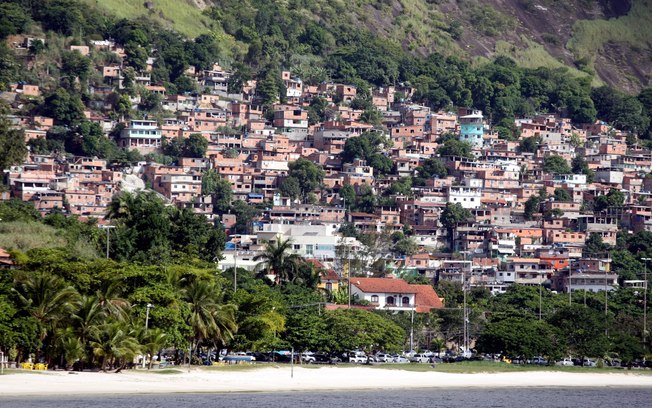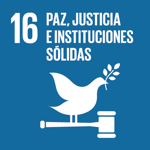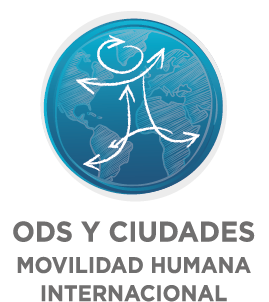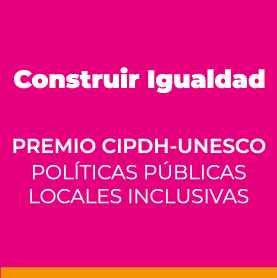
- Region
- Latin America and the Caribbean
- Range of Demographic Size
- 100,000 to 499,999 inhabitants (large intermediate)

16.1 Significantly reduce all forms of violence and related death rates everywhere.
16.2 End abuse, exploitation, trafficking and all forms of violence against and torture of children.
16.3 Promote the rule of law at the national and international levels and ensure equal access to justice for all.
16.4 By 2030, significantly reduce illicit financial and arms flows, strengthen the recovery and return of stolen assets and combat all forms of organized crime.
16.5 Substantially reduce corruption and bribery in all their forms.
16.6 Develop effective, accountable and transparent institutions at all levels.
16.7 Ensure responsive, inclusive, participatory and representative decision-making at all levels.
16.8 Broaden and strengthen the participation of developing countries in the institutions of global governance.
16.9 By 2030, provide legal identity for all, in particular, by means of birth registration.
16.10 Ensure public access to information and protect fundamental freedoms, in accordance with national legislation and international agreements.
16.a Strengthen relevant national institutions, including through international cooperation, for building capacity at all levels, in particular in developing countries, to prevent violence and combat terrorism and crime.
16.b Promote and enforce non-discriminatory laws and policies for sustainable development.
American Convention on Human Rights
International Convention on the Elimination of All Forms of Racial Discrimination (ICERD
Convention on the Elimination of all Forms of Discrimination Against Women (CEDAW).
United Nations Declaration on the Rights of Indigenous Peoples (UNDRIP).
Declaration on the Elimination of Violence Against Women.
Universal Declaration of Human Rights (UDHR).
International Covenant on Economic, Social and Cultural Rights (ICESCR).
International Covenant on Civil and Political Rights (ICCPR).
Summary
Enacted by the United Nations General Assembly in 1948, the Universal Declaration of Human Rights marked the beginning of a new era of protection of life and human existence.
In Niterói, the municipality’s efforts to ensure citizen’s rights were strengthen with the creation of the Municipal Secretariat of Human Rights (SMDH) in 2021 through Law no. 3575. This agency works to combat fundamental rights violations and to promote the dignity of Niterói’s citizens.
The establishment of the SMDH allowed for the structuring, at the municipal level, of the Integrated Human Rights System (SIDH), a public policy at the service of the population that seeks to guarantee access to citizenship, justice, and basic dignity.
To develop this effort, a services network was set up, divided into on-site and online work. The SIDH offers protection to victims of human rights violations, facilitates access to basic civil documents, offers mechanisms for conflict resolution through mediation and restorative justice, and welcomes migrants and refugees.
Besides being a significant recourse to guarantee and promote social justice, the SIDH brings Niterói citizens closer to their rights and decreases impunity, especially for those who have suffered some kind of vulnerability. The technical and multidisciplinary team working at the SIDH is composed of lawyers, social workers, social educators, and psychologists.
Implementation Date:
Start: 01 / 3 / 2021
End: End: Currently in force
LGBTI Population
Population of African descent
Indigenous peoples
Access to justice
Institutional strengthening
- Email: smdh@smdh.niteroi.rj.gov.br
- Web: http://www.niteroi.rj.gov.br/
- Telephone: +55 21 96992-9577
- Social Network:
Instrumentos

16.1 Significantly reduce all forms of violence and related death rates everywhere.
16.2 End abuse, exploitation, trafficking and all forms of violence against and torture of children.
16.3 Promote the rule of law at the national and international levels and ensure equal access to justice for all.
16.4 By 2030, significantly reduce illicit financial and arms flows, strengthen the recovery and return of stolen assets and combat all forms of organized crime.
16.5 Substantially reduce corruption and bribery in all their forms.
16.6 Develop effective, accountable and transparent institutions at all levels.
16.7 Ensure responsive, inclusive, participatory and representative decision-making at all levels.
16.8 Broaden and strengthen the participation of developing countries in the institutions of global governance.
16.9 By 2030, provide legal identity for all, in particular, by means of birth registration.
16.10 Ensure public access to information and protect fundamental freedoms, in accordance with national legislation and international agreements.
16.a Strengthen relevant national institutions, including through international cooperation, for building capacity at all levels, in particular in developing countries, to prevent violence and combat terrorism and crime.
16.b Promote and enforce non-discriminatory laws and policies for sustainable development.
American Convention on Human Rights
International Convention on the Elimination of All Forms of Racial Discrimination (ICERD
Convention on the Elimination of all Forms of Discrimination Against Women (CEDAW).
United Nations Declaration on the Rights of Indigenous Peoples (UNDRIP).
Declaration on the Elimination of Violence Against Women.
Universal Declaration of Human Rights (UDHR).
International Covenant on Economic, Social and Cultural Rights (ICESCR).
International Covenant on Civil and Political Rights (ICCPR).
Location
- Region
- Latin America and the Caribbean
- Range of Demographic Size
- 100,000 to 499,999 inhabitants (large intermediate)
Contact details
- Email: smdh@smdh.niteroi.rj.gov.br
- Web: http://www.niteroi.rj.gov.br/
- Telephone: +55 21 96992-9577
- Social network:



